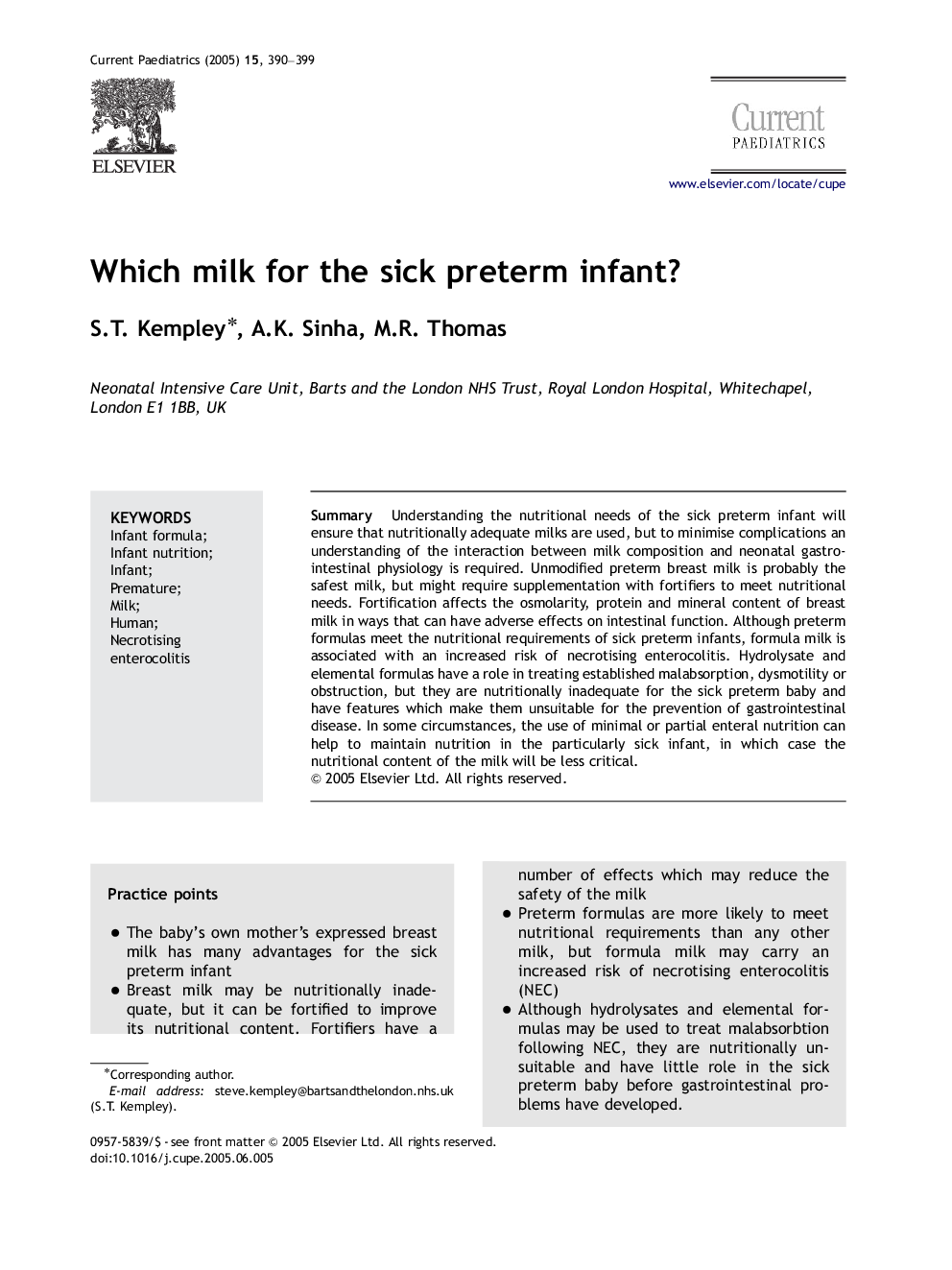| Article ID | Journal | Published Year | Pages | File Type |
|---|---|---|---|---|
| 9372249 | Current Paediatrics | 2005 | 10 Pages |
Abstract
Understanding the nutritional needs of the sick preterm infant will ensure that nutritionally adequate milks are used, but to minimise complications an understanding of the interaction between milk composition and neonatal gastrointestinal physiology is required. Unmodified preterm breast milk is probably the safest milk, but might require supplementation with fortifiers to meet nutritional needs. Fortification affects the osmolarity, protein and mineral content of breast milk in ways that can have adverse effects on intestinal function. Although preterm formulas meet the nutritional requirements of sick preterm infants, formula milk is associated with an increased risk of necrotising enterocolitis. Hydrolysate and elemental formulas have a role in treating established malabsorption, dysmotility or obstruction, but they are nutritionally inadequate for the sick preterm baby and have features which make them unsuitable for the prevention of gastrointestinal disease. In some circumstances, the use of minimal or partial enteral nutrition can help to maintain nutrition in the particularly sick infant, in which case the nutritional content of the milk will be less critical.
Related Topics
Health Sciences
Medicine and Dentistry
Perinatology, Pediatrics and Child Health
Authors
S.T. Kempley, A.K. Sinha, M.R. Thomas,
